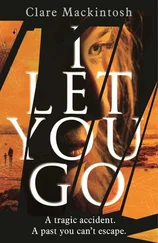Sincerely,
Marcus Weiner
He read it aloud a half-dozen times, then put it beneath his pillow. Sincerely, Marcus Weiner …
Just how much did Cousin Edward know?
Something in him was afraid to ask.
CHAPTER 15. Revolution’s Eve
That week, Trinnie invited him to go along on a job. She had never done that before; the gesture was a coming-of-age for both of them.
Mother and son were met in the lobby of the Motion Picture and Television Hospital by Tim de Kooning, the pastor there. The Trotters were well known, and Father de Kooning said it was a happy coincidence to have recently met Trinnie’s sister-in-law in connection with a “quite amazing program for orphaned children which Joyce — I’m sure you know! — has spearheaded.”
Upon entering the grounds, Trinnie felt as if in a geriatric Shangri-la. Like most Angelenos, she had only a dim awareness of this place, and (until now) thought of it as “the old actors’ home” rather than a modern medical facility. Her parents, along with their friends the Wassermans and the Douglases, had been generous to the institution throughout the years. Trinnie could remember being at a benefit listening to her mother and Debbie Reynolds chat about the Woodland Hills sanctuary, saying it was where both wanted to be when it was time to “wrap things up.” (Bluey had always loved show people.) Strolling through the cafeteria with its waiters and white linen, the pastor pointed out wizened cowboys and ex-vamps in dainty gloves carving up racks of lamb — here, a renowned cinematographer seated beside an early effects wizard; there, a mistress of Howard Hughes, now a hundred years old. The place had a hazy, anomalous Garden of Allah vibe that instantly drew her in. The Rockwellian town square, with its architectural nod to gazebos, bandstands and calliopes, finished off the effect.
They were on their way to Harry’s Haven, the unit for those suffering from the disease of forgetting. Father de Kooning liked going over to speak after Sunday chapel services. A gift from Kirk and Anne Douglas, the “Alzheimer’s cottage” had been built in memory of the actor’s father.
They followed him in to a large room off the main corridor, where nurses had assembled about a dozen residents. Trinnie and Tull sat near the back while the pastor spoke. The boy watched the goings-on, wide-eyed. A hawk-like man with crossed, hairy arms corrosively deconstructed Father de Kooning’s monologue, then abruptly fell silent, like an actor on a stool upon a stage. In the back row, a painted woman kissed the hand of a fey, embarrassed galfriend. “You’re marvelous!” she hissed with maudlin zealotry. “You’re just sensational, and you know it!” A Babe Paley type, displeased by the outburst, turned to stare the painted woman down — the former resembling a socialite who’d been forced to endure Bedlam itself as some kind of charity stunt.
Undaunted, the pastor homilized. “It was a dark and stormy night,” he said, putting on a bit of the evangelizing dog for Trinnie, “and a father and son headed home. They came to a bridge, but the bridge was washed out. As the wind howled and rain poured down, the man lifted his son and walked across a log that straddled the raging river.” He paused, for effect. “The boy awoke in his warm bed the next morning. He told his father that, back at the river, when he lifted him up he had fainted dead away, afraid they both would die.”
“And I was afraid you wouldn’t !” interjected the hawkish scold, who then turned instantly to stone.
The pastor was undeterred. “ ‘Why be afraid?’ asked the the boy’s father. ‘That’s what death is: you fall asleep in a storm — then suddenly, you’re home.’ ”
Given the milieu, Tull thought the story inappropriate — not that anyone in the room had anything to say about it. Anyhow, who gave a shit? It wasn’t exactly the Crystal Cathedral. He looked at Trinnie, amazed to see tears in her eyes. Maybe her mind was on something else entirely. Maybe she’s just missing heroin , he thought maliciously.
The pastor walked them to the garden and bid his adieu.

Trinnie took a draft of air as she scanned the site.
“They call this a wandering garden,” she said, in teaching mode, “because people with Alzheimer’s like to wander . Have you ever seen a walking labyrinth? They go way back to medieval Christian churches. That was my original thought for Saint-Cloud … there’s one in San Francisco — Grace. It’s based on the labyrinth at Chartres, thirteenth-century. Haven’t we been there, Tull?” He wouldn’t dignify it with an answer. “I can’t believe I never took you to Grace!”
“I can,” he said, unable to resist.
“Of course, there isn’t room for something like that here; the idea is to create the feeling of flow, without the formalism of concentric rings.” She stopped to touch the leaf of an overhanging tree. “The fun part is, all flowers must be edible. I am told that people with Alzheimer’s like to forage.”
An old crone gained on them, her purplish-spotted arm extended as if to hail a cab. “Hey! Hey!” she shouted at Trinnie. “You’re sensational! You’re just sensational and you know it! You know it!” She picked up speed and overtook them, a contender in a crazed derby.
“Maybe I should build a little grotto — and dovecotes. I need to find out if the sound of pigeons or water is a no-no for Alzheimoids. The birds’ll probably shit everywhere, and that’s no good … this really does remind me of the park Proust’s uncle made — the Pré Catelan — at Illiers-Combray. You know: ‘lost time’ and all. Kind of thematically perfect, huh. But is it pretentious?” Listening to his mother prattle sickened him. “Did I ever tell you,” she said conspiratorially, “that I stole something from the Proust Museum? Oh my God! A butter dish. I’ve never told anyone that; I wasn’t ‘well’ at the time — I think I was AWOL from somewhere. I need to send it back, anonymously , but I’ve never been able to find the damn thing. I only hope to God they had the sense not to leave the real dish out for John Q. Public … or should I say Jean Q. Publique —”
“Is Grandma going to live here?”
“No,” she said smugly, as if such a thing were out of the question.
Tull nodded at the squawking crone as she came around on another lap. “Is that what’s happening to Grandma?”
“We don’t know what’s happening to Grandma.”
“Then why are we here?”
“Because I’m redoing the garden. Grandpa’s paying for it.”
“Why?”
“Because the Douglases asked him to.”
“If Grandma’s going to live here, you should just tell me.”
“She’s not — OK?”
Trinnie shot him a look that said, I’ve already told you my secrets — get over it.
They kept walking.
“It’d be interesting to plant a little Cosmos atrosanguineus —that’s Latin for ‘black blood.’ They’re from Mexico and they smell like hot chocolate. Though I’m not so sure they can be eaten ,” she said, besotted with herself.
Tull’s finger felt the soft outline of the folded cryptogram he’d committed to memory and carried in his pocket all week long. If I was shocked at the reckless insinuation of your employee, I was absolutely dumbfounded—
“Why were you crying?” he asked.
“Crying?”
“Inside — when he told the story.”
“It made me sad.”
“A retarded Sunday School story made you sad,” he said acidly. “Are you born-again now, on top of being AA?”
Читать дальше













